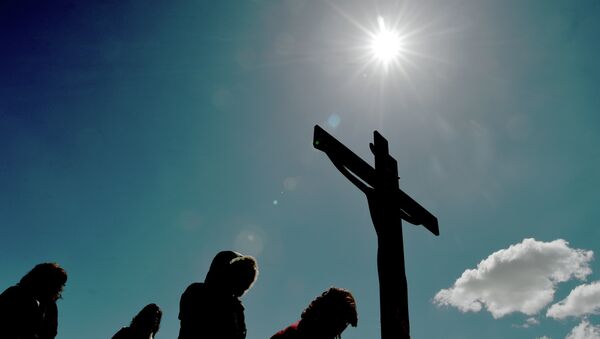"The marble covering of the tomb has been pulled back, and we were surprised by the amount of fill material beneath it…It will be a long scientific analysis, but we will finally be able to see the original rock surface on which, according to tradition, the body of Christ was laid," Fredrik Hiebert, an archaeologist-in-residence at the National Geographic Society, told National Geographic.
Biblical tradition holds that the body of Jesus was laid on a "burial bed made of limestone after his crucifixion at the hands of the Roman empire some 2,000 years ago, after which he resurrected and was found not to be there when three women came to his tomb to prepare the body for burial.
The shelf, thought to be one of Jesus’ final resting places, is now housed in a structure called the Edicule, or "little house," and is currently in the midst of a restoration process, along with the interior tomb. The restoration is being led by a research team from the National Technical University of Athens, and is being directed by chief scientific supervisor Professor Antonia Moropoulo.
Speaking of the opportunity to study what potentially may be one the most sacred objects in Christianity, Moropoulo said, "We are at the critical moment for rehabilitating the Edicule…The techniques we're using to document this unique monument will enable the world to study our findings as if they themselves were in the tomb of Christ."
The Church of the Holy Sepulchre is primarily under the custody of the Roman Catholic Church, the Armenian Orthodox Church and the Greek Orthodox Church. Syriac, Coptic and Ethiopian Orthodox groups also maintain a presence in the structure. There is a status quo agreement regulating the common worship areas that is open to all six sects, including the tomb, and all participating churches must be agreeable to it.
"Here we have Franciscans, Armenians, Greeks, Muslim guards, and Jewish police officers. We hope and we pray that this will be a real message that the impossible can become the possible. We all need peace and mutual respect." according to Thephilos III, the Greek Patriarch of Jerusalem.




